IRES Seminar Series
Time: 12:30pm to 1:30pm (every Thursday)
Via Zoom
*********************************************************************************
Interview with Claire Kim: Race and Human-Animal Relations
UBC IRES Professor Terre Satterfield will be interviewing Professor Claire Kim from University of California, Irvine on the topic of Race and Human-Animal Relations.
Claire Kim

Professor, University of California, Irvine
Bio:
Claire Jean Kim is Professor of Political Science and Asian American Studies at University of California, Irvine, where she teaches classes on comparative race studies and human-animal studies. She has written two award-winning books: Bitter Fruit: The Politics of Black-Korean Conflict in New York City (Yale University Press 2000) and Dangerous Crossings: Race, Species, and Nature in a Multicultural Age (Cambridge University Press 2015). She has published in popular venues such as The Los Angeles Times and The Nation, and she is frequently interviewed by the media on topics related to anti-blackness, racism, animals, and ecology. She is currently completing a book entitled Asian Americans in an Anti-Black World.
IRES Seminar Series
Time: 12:30pm to 1:30pm (every Thursday)
Via Zoom
Please email communications@ires.ubc.ca for video.
*********************************************************************************
Integrating Analysis and Communication
The talk will address opportunities for integrating research and public service by creating empirically based communications responsive to user needs. It will draw examples from a diverse application areas.
Baruch Fischhoff
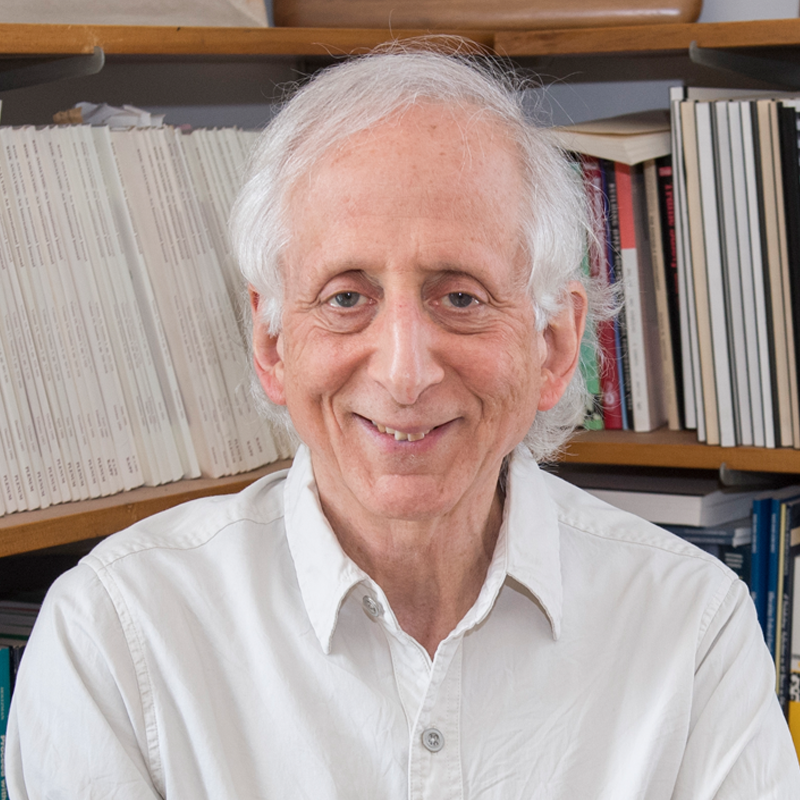
Howard Heinz University Professor, Institute for Politics & Strategy and Engineering & Public Policy at Carnegie Mellon University
Bio:
Baruch Fischhoff is Howard Heinz University Professor, Department of Engineering and Public Policy and Institute for Politics and Strategy at Carnegie Mellon University. He is a graduate from Wayne State University (BS, mathematics, psychology) and the Hebrew University of Jerusalem (PhD, psychology). He is an elected member of the (US) National Academy of Sciences and National Academy of Medicine. His research and public service focuses on judgment and decision making where technical knowledge, analysis and two-way communication are critical.
IRES Seminar Series
Time: 12:30pm to 1:30pm (every Thursday)
Via Zoom
(This seminar will not be recorded.)
*********************************************************************************
Decolonizing Institutions or Institutionalizing Decolonization?
The COVID-19 pandemic has starkly demonstrated the depth of social inequalities in North America, leading to an agitated summer of 2020 that has been characterized by popular uprising and growing support of social movements for Black Lives Matter and prison abolition. Universities have joined in on antiracist language, declaring statements against racism, violence, and white supremacy. Are these recent efforts an example of the decolonization of institutions or might they serve as examples of the institutionalization of decolonization? Considering past efforts to decolonize higher education and a colonial-era ethnological and ethological museum, this talk considers the pitfalls of ambiguity between aspirations for transformation on one hand and the cynicism of merely symbolic gestures on the other.
Juno Salazar Parreñas
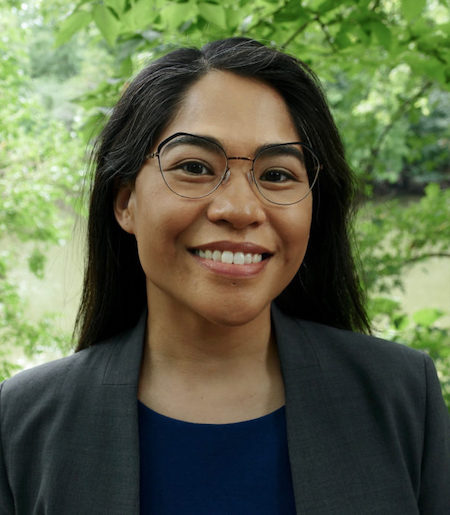
Assistant Professor, Science & Technology Studies and Feminist, Gender, & Sexuality Studies, Cornell University
Bio:
Juno Salazar Parreñas is an Assistant Professor of Science and Technology Studies and Feminist, Gender, and Sexuality Studies at Cornell University. She is the author of Decolonizing Extinction: The Work of Care in Orangutan Rehabilitation (Duke UP, 2018), which received the 2019 Michelle Rosaldo Prize from the Association for Feminist Anthropology and honorable mentions for the 2019 New Millennium Book Award, 2019 Diana Forsythe Prize, and the 2020 Harry Benda Prize. She is designing a new research project about the global emergence of animal retirement and veterinary geriatrics in the context of growing global concern about human retirement and aging.
IRES Seminar Series
Time: 12:30pm to 1:30pm (every Thursday)
Via Zoom
*********************************************************************************
Machine learning methods for examining the impact of climate variability on crop yields in India
Due to the strong dependence of agricultural productivity on climate, predicting crop yields as a function of climate variability has been a topic of extensive research over the past many decades. However, most previous studies have utilized seasonal average climate values in their statistical models, largely ignoring intra-seasonal climate variability. Even though the latter has been demonstrated to have disproportionately strong impacts on crop yields, it has largely remained unaccounted for in statistical crop models and global yield estimates. To address this research gap, Balsher is developing improved crop yield statistical models with dedicated variables for intra-seasonal climate variability, using India as a case study. In this talk, Balsher will discuss a part of his research showing the advantages of machine learning methods over more traditional regression techniques for predicting crop yields as a function of climate variability.
Balsher Sidhu
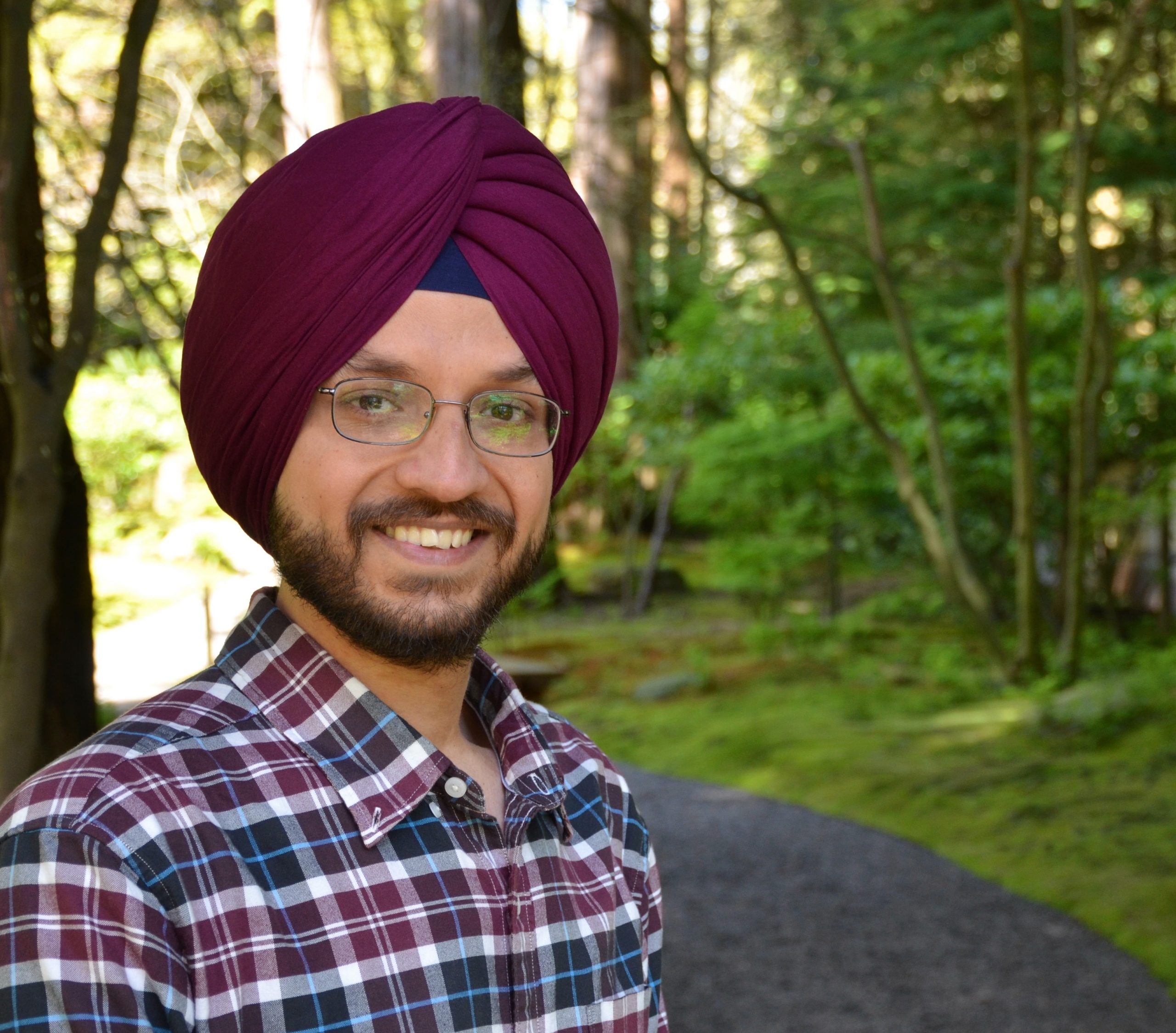
IRES PhD Program
Bio:
Balsher grew up in Punjab, India, a state often called the bread basket of the country. His formative years in the midst of intensive agricultural activity have played a prominent role in determining the topic of his doctoral research, for which he is analyzing the relationship between climate and agriculture in India. More specifically, he is building statistical models to quantify the impact climate variability (both intra-seasonal, and long-term climate change) has on crop yields across the country. Balsher is co-supervised by professors Milind Kandlikar and Navin Ramankutty, and is funded by UBC’s Four-Year Fellowship and the NSERC Vanier Canada Graduate Scholarship.
Will the trade of novel Amazon fruits help recover the Amazon forest? Sustainable consumption of Acai in Metro Vancouver
Only 9 food plants account for 66% of global crop production from 300 that are commonly traded, while other 7,000 are disappearing along with species that feed on these fruits. Palm oil and soy are among the leading drivers of deforestation and biodiversity loss in Amazon countries, yet we consume these ingredients in almost every processed food. Existing conservation instruments (e.g. PES, REDD+) built capacity in this region but fell short in supporting shifts to sustainable agriculture. As a solution to this problem, Amazon countries are promoting the trade of native fruits considering its increasing demand in the health food industry. However, two challenges must be overcome first to allow a favourable shift: appropriate regulations and sustainable consumption of these fruits. Therefore, I focus on the trade of Acai (Euterpe oleracea) in Canada as my case study considering the growing demand for this Amazon fruit. An assessment of attitudes towards the sustainable consumption of Acai in Metro Vancouver was carried out through a Likert survey and by interpreting correlations with demographic data. In addition, a comparative analysis of eco-certifications and regulations applicable in the trade of Amazon fruits in North America and Europe offer an overview of the regulatory barriers and opportunities to develop market-based conservation mechanisms. Findings confirm that Vancouverites are increasingly concerned about the effects of their Acai products on nature and their health despite eco-certifications. This research provides insights into the sustainable consumption of Amazon fruits in Canada as an alternative to recover contested biodiverse landscapes and neglected traditional fruits.
Luis Felipe Melgarejo Perez
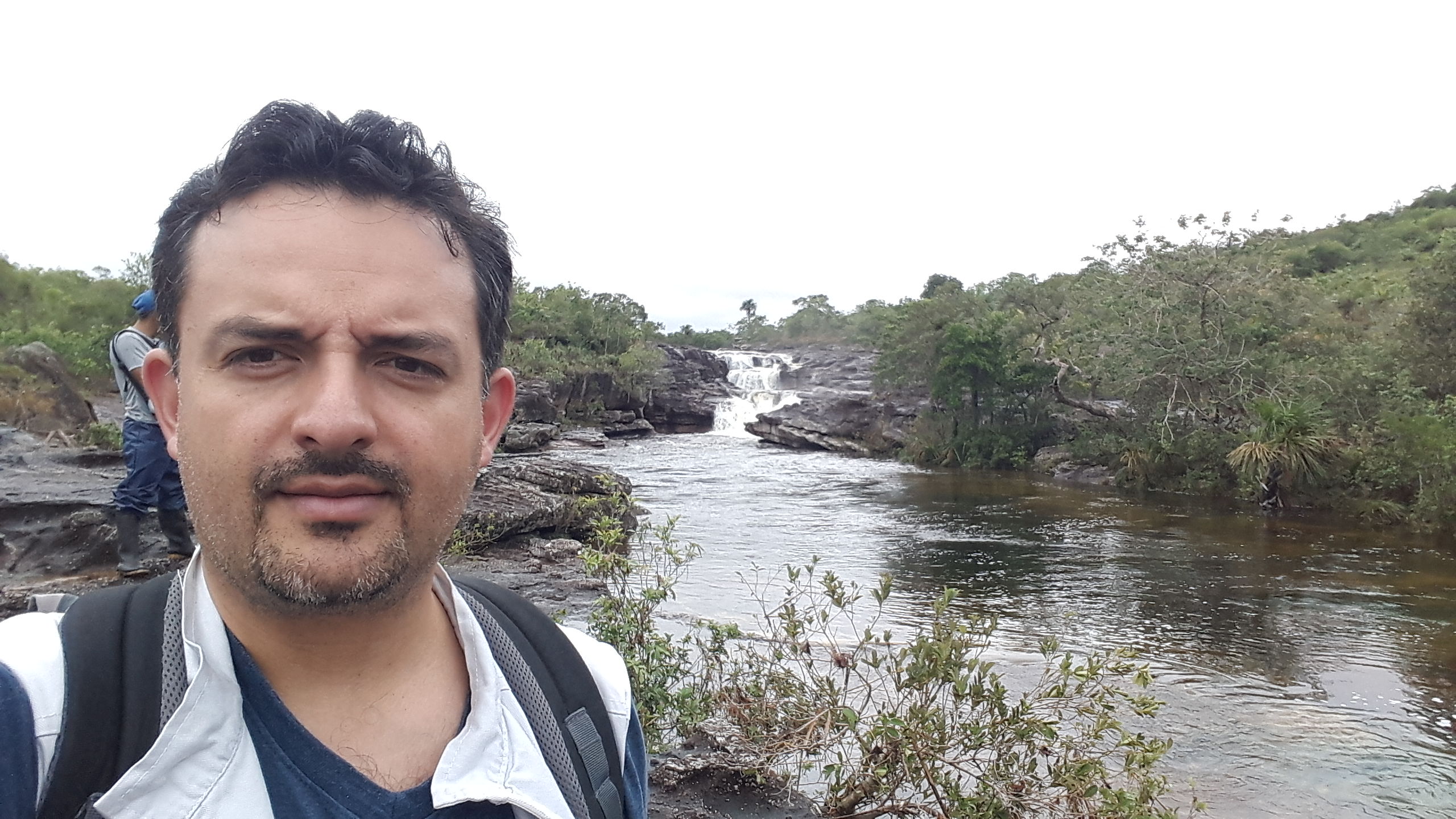
IRES MA Program
Bio:
Luis F. Melgarejo was born in Colombia and worked at the German International Development Agency – GIZ in several projects related to environmental conflict transformation and regional planning (M.Sc.). He studies entrepreneurships that help recovering biodiversity while sustainably managing natural forests with rural communities. A full-time foodie, particularly when it comes to neglected fruits that look promising for the food industry and to reconnect ecological corridors in contested landscapes. Before IRES, he led a Forest Protection Program in the Colombian Amazon, promoting wild fruits by supporting farmers and start-ups to gradually shift from extensive ranching and illicit crops to endemic agroforestry.
IRES Seminar Series
Time: 12:30pm to 1:30pm (every Thursday)
Via Zoom
*********************************************************************************
Litigating the Climate Emergency: How Human Rights, Courts and Legal Mobilization Can Bolster Climate Action
Climate litigation based on human rights is proliferating around the world. From the Netherlands to Mexico, from Canada to South Africa to the Philippines, from the Arctic to the Amazon, from domestic to international courts, litigants are bringing legal challenges against governments and corporations to hold them accountable for massive human rights violations associated with global warming. This talk presents the first systematic study of the universe of rights-based climate litigation around the world. The talk discusses the origins and the emergent legal doctrines as well as the impact and limitations of rights-based litigation in advancing climate action.
César Rodríguez-Garavito
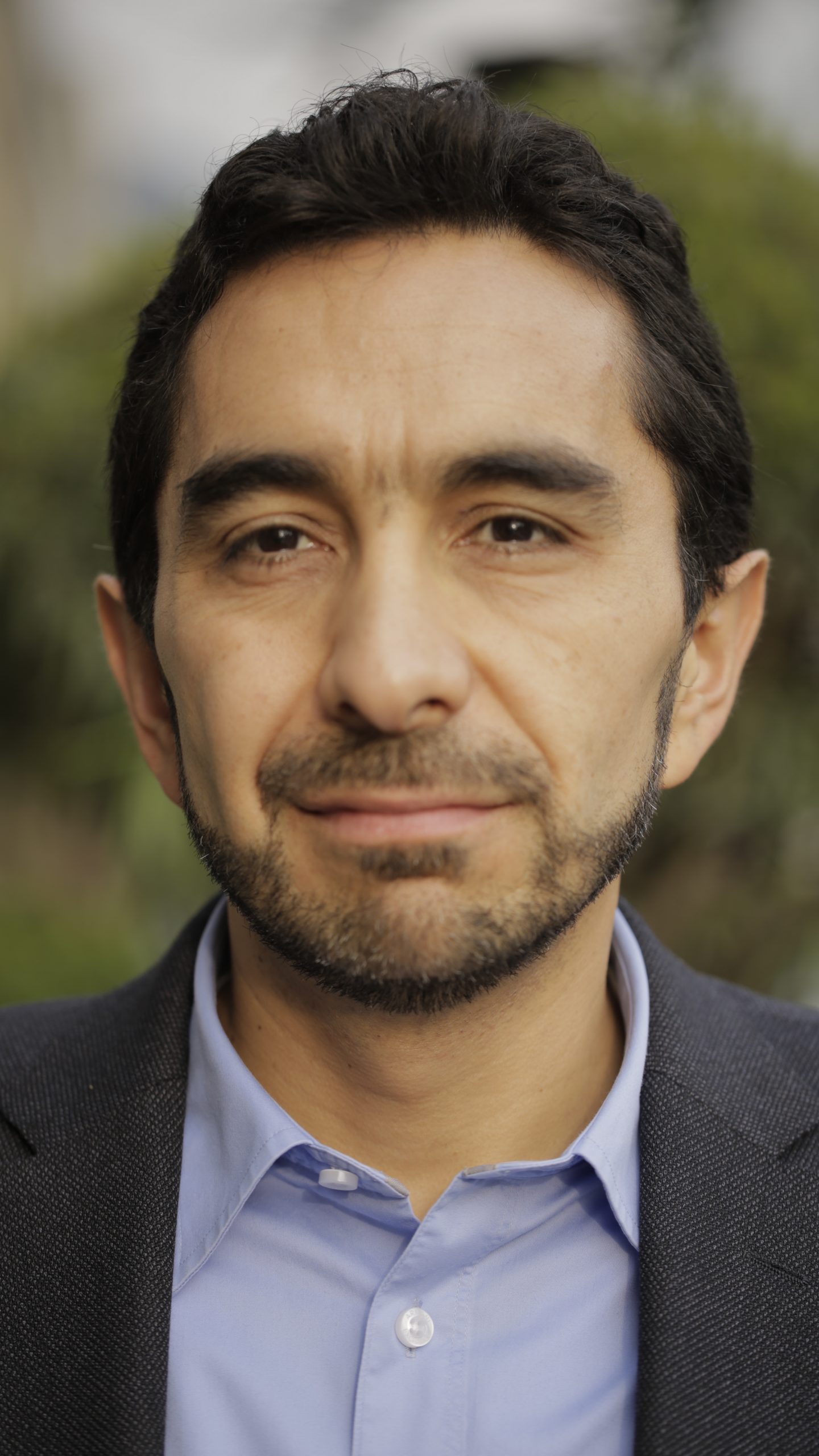
Director, the Center for Human Rights and Global Justice at NYU School of Law
Bio:
César Rodríguez-Garavito is a director of the Center for Human Rights and Global Justice at NYU School of Law and the Editor-in-Chief of Open Global Rights. He has been as visiting professor at Stanford, Brown, the University of Melbourne, European University Institute, University of Pretoria, the Getulio Vargas Foundation (Brazil) and the Andean University of Quito. He has published widely on global governance, international human rights, climate litigation, socio-environmental conflicts, and business and human rights. He has served as expert witness of Inter-American Court of Human Rights, an Adjunct Judge of the Constitutional Court of Colombia, a member of the Science Panel for the Amazon and a lead litigator in climate change, socioeconomic rights and indigenous rights cases.
A UBC study led by Edward Gregr, an adjunct professor at IRES, notes the economic costs and long-term benefits of sea otter recovery. While sea otters are detrimental to fisheries income, economic gains in other sectors outweigh these losses.
Native bumblebees — as opposed to the semi-domesticated honeybees that farmers are increasingly reliant on — are better for many B.C. farming systems, observed Claire Kremen, prof at UBC in zoology and IRES.
IRES Seminar Series
Time: 12:30pm to 1:30pm (every Thursday)
Via Zoom
*********************************************************************************
Counter-Institutionalizing First Nation-Crown relations in British Columbia
In Canada, the advance of industrial resource extraction has been moderated by a series of key legal decisions which have found that development activities within the traditional territories of Indigenous groups may infringe on aboriginal and treaty rights, requiring a duty to consult and potentially accommodate those affected. In British Columbia this duty is primarily satisfied through the crown referrals process, whereby affected First Nation groups are notified by the crown regarding potential rights-affecting decisions and are given an opportunity to formulate a response. This form of institutionalized engagement presents an ongoing challenge for First Nation groups who struggle to manage the influx of crown referrals as well as a dilemma for those who question its fairness and inherent colonial structure. For others, it is seen as an opportunity to leverage the duty to consult and accommodate in order to strengthen territorial self-governance. In this presentation I explore the ways in which the crown referrals process has been utilized and redrawn by First Nation groups in order to achieve their territorial goals, and the trade-offs involved.
Anthony Persaud
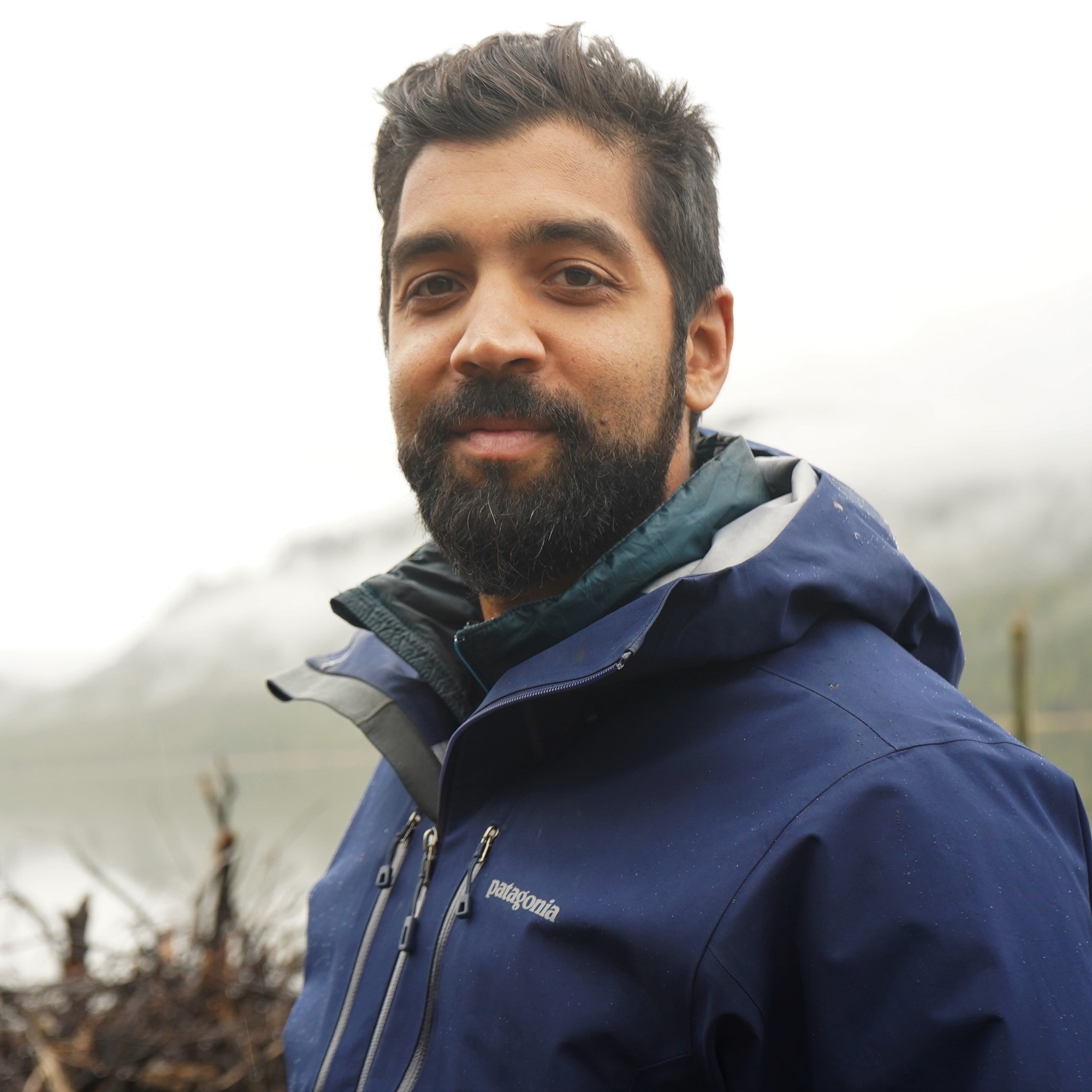
IRES PhD Program
Bio:
Anthony is a PhD candidate and community development practitioner with a broad focus on the intersections between community well-being, economic futures, and Indigenous territorial self-governance. Under the supervision of Dr. Terre Satterfield at IRES-UBC, his action-based research seeks to understand how institutional innovations in relation to housing, natural resource management, and consultation and accommodation processes enable First Nation groups to achieve their cultural economic goals. Anthony brings to his work more than a decade of experience working directly with rural and Indigenous communities and authorities in British Columbia and internationally in West Africa and Latin America. He approaches all of his work utilizing decolonizing, community-based participatory methods with the aim of enhancing Indigenous self-determination.
Adaptive Mitigation: A framework for assessing interactions between climate adaptation and mitigation approaches in urban multifamily buildings
Understanding of the interrelationship between climate adaptation and mitigation strategies in the built environment has been very limited, potentially resulting in unintended risks, redundancies, additional costs, and missed opportunities. There is a need to expand this area of investigation and provide associated analysis tools to the building industry.
Our research asks how the design process for multifamily buildings in urban neighbourhoods can effectively integrate both climate adaptation and mitigation considerations. Urban multifamily buildings are an important typology because of their concentration of GHG emissions, occupant densities, and often vulnerable residents. Drawing from a wide range of literature, guidelines, policies, and input from key experts, we developed an integrated building adaptation and mitigation assessment (IBAMA) framework to help practitioners more effectively evaluate solutions. IBAMA is being developed for BC Housing with funding provided by the Pacific Institute for Climate Solutions.
Ilana Judah
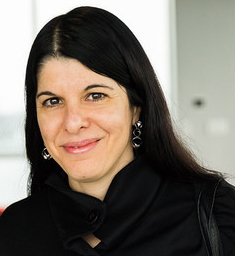
IRES MSc Program
Bio:
Ilana is an MSc Student under the supervision of Dr. Stephanie Chang. A practicing architect for over 20 years, she was formerly a Principal and Director of Sustainability at FXCollaborative, a New York City architecture firm known for their pioneering work on sustainable high-rises. Ilana served on several industry task forces to address sustainability, climate change mitigation and adaptation in buildings. A Certified Passive House Designer, she was co-author of a research study on the feasibility of implementing the Passive House standard on residential high-rise buildings. Ilana studied architecture at McGill University and is a registered architect in Quebec and New York.
IRES Seminar Series
Time: 12:30pm to 1:30pm (every Thursday)
Via Zoom
*********************************************************************************
My 30-year journey (with bumps and breakdowns on the way)
Areef has worked for over three decades with underserved communities who struggle to pay their energy bills. This presentation will discuss how and why it all began, and the successes and pitfalls he experienced along the way. Areef’s learned experience speaks to the importance of working effectively at the interface of communities, governments and tradespeople to improve outcomes for all.
Today Areef’s family business, Kambo Energy Group, is a 40+ person equity-based social enterprise run by his children—all of whom are UBC alumni. Through its two main programs—Empower Me and Community Power—Kambo Energy Group works with Indigenous Nations, lower income households, immigrants, and new Canadians with an aim to provide energy solutions for all.
Areef Abraham
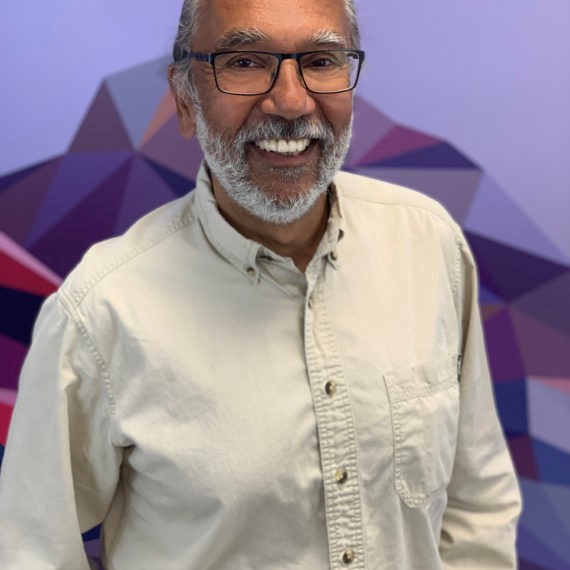
President & CEO at Community Power and Director at Kambo Green Solutions
Bio:
Areef is a natural community collaborator who has had led a rich career helping clients move from ideas to on-the-ground action. As a mechanical engineer, he has dedicated the past 30+ years of experience in energy efficiency sectors in North America and across the UK.
Areef is the Founder of Kambo Energy Group, a social enterprise which encompasses two divisions – Community Power and Empower Me. Community Power works with First Nations and other underserved groups to manage and reduce energy costs. Empower Me focuses on providing in-language energy education by community mentors to newcomers and immigrants.
Areef’s overriding business philosophy is to focus on what matters, and to matter you need to execute.








